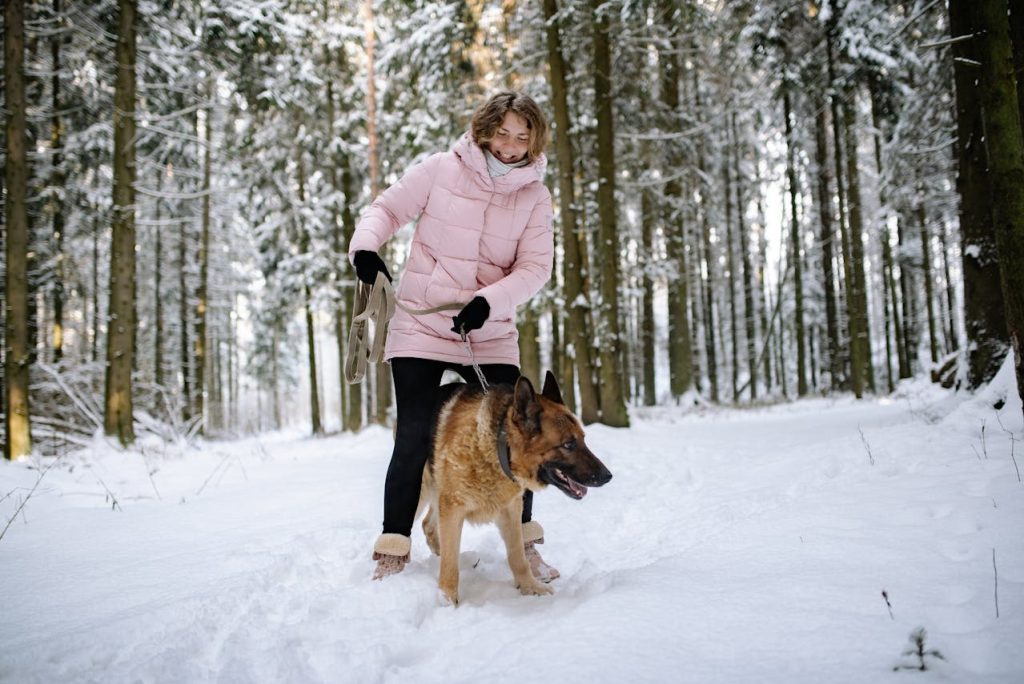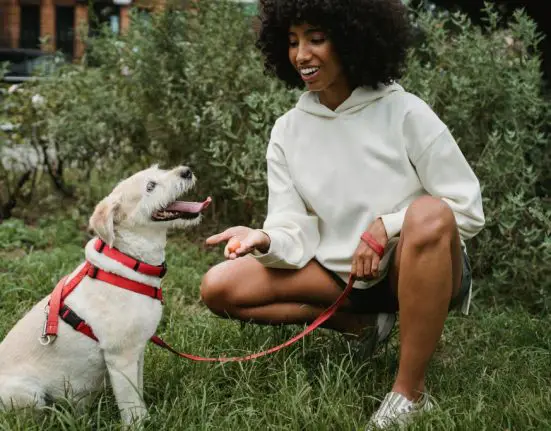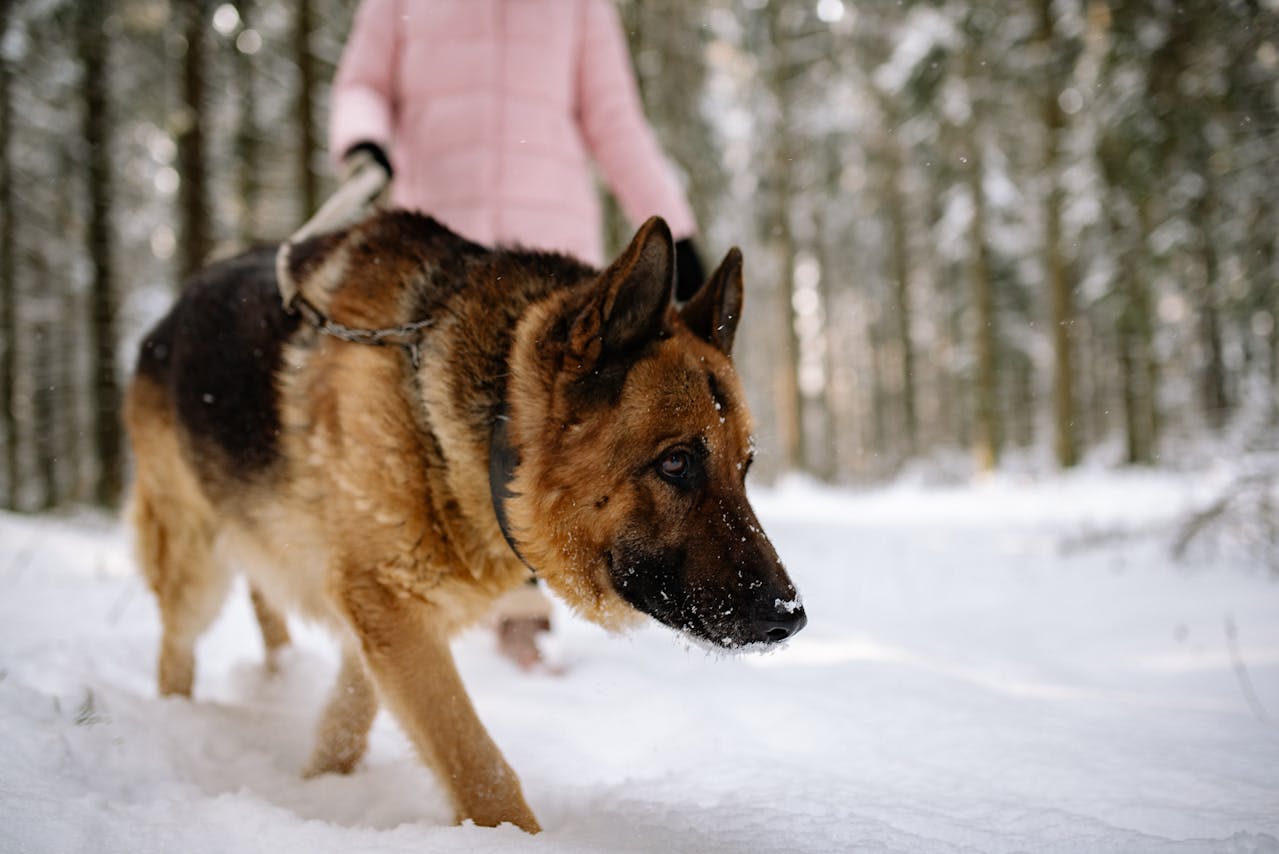Are German Shepherds good with kids? You are soon to find out yourself. German Shepherds are big, strong dogs with a lot of love to give, especially to kids in their family. These dogs are smart and loyal and can become a child’s best friend if taught how to behave around each other. But, choosing a German Shepherd as a family pet is a big decision. These dogs need the right training to live happily with young children. If you’re wondering if German Shepherds are good with kids, the answer is a confident yes! With the proper training and care, they can be wonderful companions. In this article, you will learn:
- How the unique traits of German Shepherds make them suited for families
- The best ways to train and socialize these dogs for a household with kids
- Tips for creating a safe and happy environment for everyone at home
Understanding German Shepherd Traits
Physical Characteristics
German Shepherds are large and strong dogs, known for their alert ears and noble stance. They require regular grooming due to their thick, double coat and have a life expectancy of about 9-13 years. Understanding their physical needs is key to ensuring they live a healthy, happy life.
Temperament and Personality
German Shepherds are incredibly intelligent and capable of handling complex tasks. This intelligence, coupled with their loyalty and protective nature, makes them excellent family pets. However, they do have a range of temperament traits that can be shaped significantly by their environment and training.

Positive Traits:
- Protective: They naturally protect their family, especially children.
- Intelligent: Quick to learn commands and tricks.
- Loyal: Form deep bonds with family members.
Negative Traits:
- Strong-Willed: Can be stubborn, requiring consistent leadership.
- Energetic: Without enough exercise, they can become restless and destructive.
Behavior Across Life Stages:
- Puppyhood: Energetic and curious, requiring patience and early socialization.
- Adulthood: Mature and calm, if given proper training and exercise.
- Senior Years: More sedate but still need engagement and affection.
Training and Socialization Needs
Training and socializing your German Shepherd are crucial steps to ensure that they integrate well into your family, particularly when you have young children.
Core Training Strategies
Early Socialization: Introduce your German Shepherd to a variety of people, places, and situations as early as possible. This helps them become well-adjusted and less fearful or aggressive in new environments.
Obedience Training: Basic commands like ‘sit’, ‘stay’, ‘come’, and ‘leave it’ are essential. Consistent, positive reinforcement methods work best with this breed, helping to establish clear communication and respect between you and your dog.
Exercise and Mental Stimulation: German Shepherds thrive when they have tasks to perform and enough space to exercise. Activities like fetching games, agility training, and regular walks keep their minds and bodies healthy.
Creating a Happy Home Environment
Space Requirements: These dogs do best in homes where they have plenty of room to move around. A secure backyard where they can play safely is ideal.
Interactive Games and Tasks: Engaging in interactive play helps strengthen the bond between your dog and your family. It also provides the mental stimulation that German Shepherds crave.
Teaching Children and Dogs to Respect Each Other: Children need to learn how to interact safely with dogs. Teach your kids never to disturb the dog while it’s eating or sleeping and to recognize signs of discomfort in their pet.
Creating a Safe Environment
Creating a family-friendly environment for a German Shepherd involves ensuring safety and respect between the dog and the children. Here are some practical tips:
Space and Exercise Needs
German Shepherds are active and need plenty of space to run and play. A fenced yard where they can exercise safely is ideal. Regular, vigorous exercise helps them burn off energy and stay mentally stable, which is essential for living peacefully with children.
Interactive Games and Tasks
Games that involve both your children and the dog can enhance their bond and teach mutual respect. Fetch, hide-and-seek with toys, and obstacle courses are great for keeping everyone engaged and active. Always supervise these activities to ensure they remain safe and fun.
Teaching Kids to Interact with Dogs
Children must learn how to behave around dogs to keep both safe:
- Gentle Touches: Teach children to pet gently, avoiding sensitive areas like the ears and tail.
- Recognizing Signs: Help them understand signs of discomfort in the dog, such as backing away or growling, and to stop interacting when they see these signs.
- Respecting Space: Remind them not to approach the dog while it’s eating, sleeping, or in its crate.
These measures not only prevent accidents but also foster a respectful and loving relationship between your German Shepherd and your children, helping them grow up as best friends.
Health and Maintenance Needs
Ensuring your German Shepherd is healthy and well-maintained is vital for a harmonious family life. Here’s how to manage their health and upkeep:
Grooming and Health Care
Grooming Needs: German Shepherds shed year-round and require regular brushing—about two to three times a week—to manage their undercoat and reduce shedding. They also need routine nail trims, ear cleaning, and dental care to prevent common health issues.
Routine Check-Ups: Regular visits to the vet for vaccinations, parasite control, and health screenings can catch and prevent many health problems early. It’s also a chance to discuss your dog’s diet and weight, which are crucial for their overall health.
Dealing with Common Health Issues
German Shepherds are prone to certain genetic conditions, such as hip dysplasia and bloat. Being aware of the early signs and preventive measures can greatly reduce the risks:
- Hip Dysplasia: Look for signs of discomfort during exercise or difficulty in rising. Weight management and proper exercise can help manage this condition.
- Bloat: Avoid feeding your dog large meals before exercise and consider multiple smaller meals throughout the day to prevent this life-threatening condition.
Proper care and regular monitoring of your German Shepherd’s health can ensure they lead a long, happy life as part of your family.
What is the German Shepherd Bite Force?
The bite force of a German Shepherd is notably strong, measured at around 238 to 750 pounds per square inch (psi). This variation depends on the individual dog’s size, health, and jaw structure. To put it in perspective, the average human bite force is about 120 to 140 psi.

This substantial bite force underscores the importance of proper training and socialization for German Shepherds, especially in environments with children. Owners need to teach their German Shepherds how to control their bite from a young age, ensuring they understand bite inhibition and appropriate behaviors in various situations.
Conclusion: Are German Shepherds Good with Kids?
Throughout this article, we’ve explored various aspects of German Shepherds, from their physical traits and personality to their training needs and health care. The consensus is clear: German Shepherds can be wonderful family dogs, especially when properly trained and integrated into the household with care and respect.
If you’re considering adding a German Shepherd to your family, the next step might be to talk to breeders or visit a rescue center to meet German Shepherds. Spending time with the breed can help you better understand their nature and see if they’re the right fit for your family dynamics.
FAQs
Are German Shepherds Safe Around Kids?
German Shepherds can be very safe around kids if they are properly trained and socialized. Their protective nature can make them vigilant guardians of children. However, it’s important for both the dog and the children to learn how to interact safely and respectfully with each other to ensure a harmonious living environment.
Are German Shepherds a Good Family Dog?
Yes, German Shepherds are excellent family dogs. They are known for their loyalty, intelligence, and the ability to be trained to perform many tasks. This breed requires active involvement in family activities, regular exercise, and mental stimulation, making them well-suited for active families.
Are Male or Female German Shepherds Better with Kids?
Both male and female German Shepherds can be great with kids. However, individual personality and how the dog has been raised and trained play a more significant role than gender. Generally, females may be smaller and less dominant, which some families might prefer, but proper training and socialization are key factors for good behavior with children.
What is the Best Family Dog?
The best family dog depends on your family’s lifestyle, activity level, and what you’re looking for in a pet. Breeds like Labrador Retrievers, Golden Retrievers, and Beagles are renowned for their gentle nature and strong compatibility with children. German Shepherds are also excellent for families looking for a more protective dog.
Can You Trust a German Shepherd?
Yes, you can trust a German Shepherd with the right training and upbringing. They are known for their loyalty and protectiveness, making them trustworthy companions when properly guided. It’s crucial to build a strong bond through training, understanding, and mutual respect.
Are German Shepherds Good for First Time Owners?
Due to their high intelligence and strong will, German Shepherds might be challenging for first-time dog owners. They require consistent training, extensive socialization, and lots of exercise, which might be overwhelming for someone inexperienced with dogs. However, a first-time owner can successfully raise a German Shepherd with the right commitment to learning about dog training and behavior.






